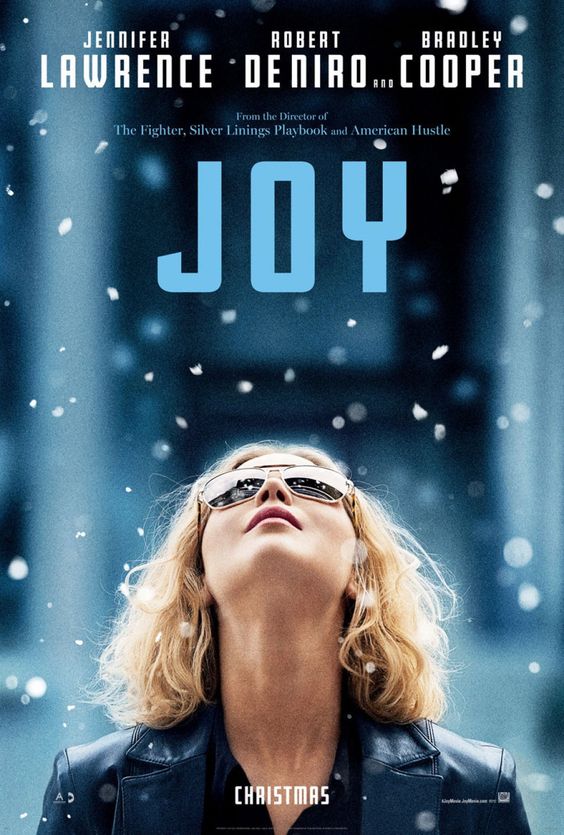Not that David O. Russell is stuck in a rut or anything, but it’s beginning to look like he’s only capable of making oddball, female-driven movies with Jennifer Lawrence, Bradley Cooper, and Robert DeNiro. The first, Silver Linings Playbook, was brilliant, and American Hustle was almost as good… which brings us to Joy.
Hey, you can’t win ‘em all, right?
Loosely based on the life of inventor and entrepreneur Joy Mangano, it’s a haphazard mess at first, before eventually settling into at least a semblance of a rhythm. By then, though, it’s a little too late, and the film emerges as not much more than yet another exhibition of Lawrence’s stellar ability to take over a movie.
Finally able to put down Katniss Everdeen’s bow and arrow, Lawrence seems more than content to get back to doing grown-up films. Present in virtually every scene, she is a force of nature in Joy— almost redeeming a film that may-well have been a complete disaster without her.
At the outset, her life is as dysfunctional as possible– her ex-husband Tony (Edgar Ramirez) is living in her basement, her mother (Virginia Madsen) spends 24/7 in bed watching her soap opera, and then Joy’s divorced father (DeNiro) joins the fray. All the while, she’s broke, getting shafted at work, and trying to raise her two kids. But she has always had dreams and an inventive mind; she came up with a flea collar a year before Hartz did, but she missed out, having not secured a patent.
Determined not to make the same mistake again, she comes up with the Miracle Mop, which, as homemakers in the 90s can attest, was a gargantuan success. Joy chronicles Mangano’s rise beautifully, particularly once Cooper enters as Neil Walker, a QVC executive who provided her big break– but Russell (who also wrote the screenplay) makes the mistake of sidetracking the film with so many odd moments that Joy never really gets a flow going. Despite cameos from the likes of Susan Lucci and Laura Wright, for example, the entire soap opera subplot is too quirky and distracting, even for Russell fans.
Conclusion
Mangolo, who served as executive producer, gave her stamp of approval to the finished product, but one would imagine it was more for Lawrence’s performance than the film as a whole. Alas, there’s too little joy in Joy. The mighty Russell has struck out.
Rating
2.5/5 stars
